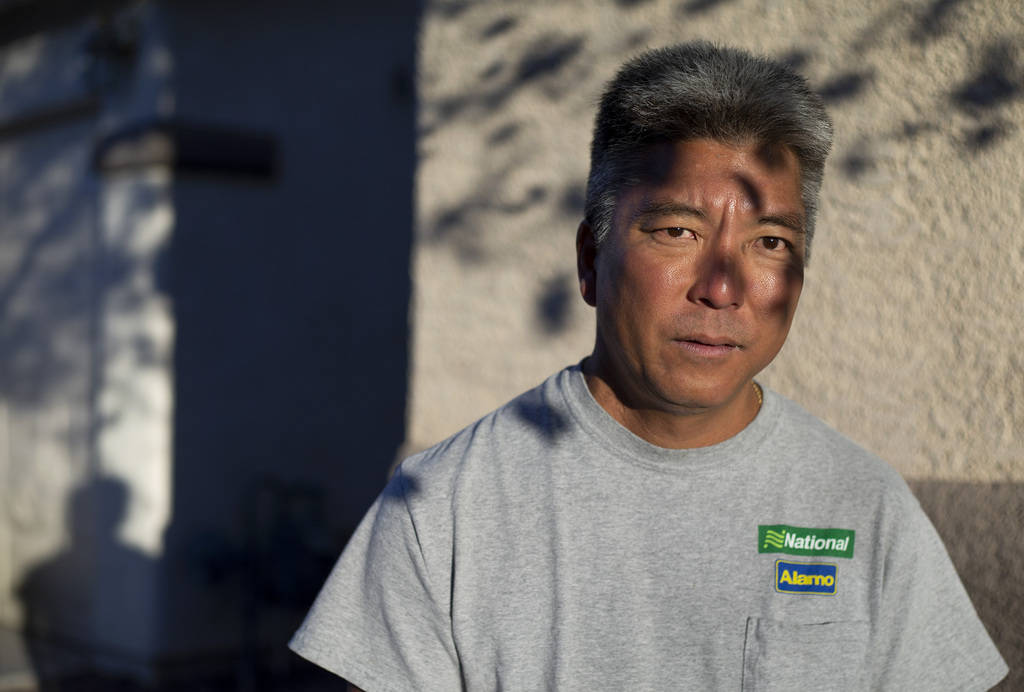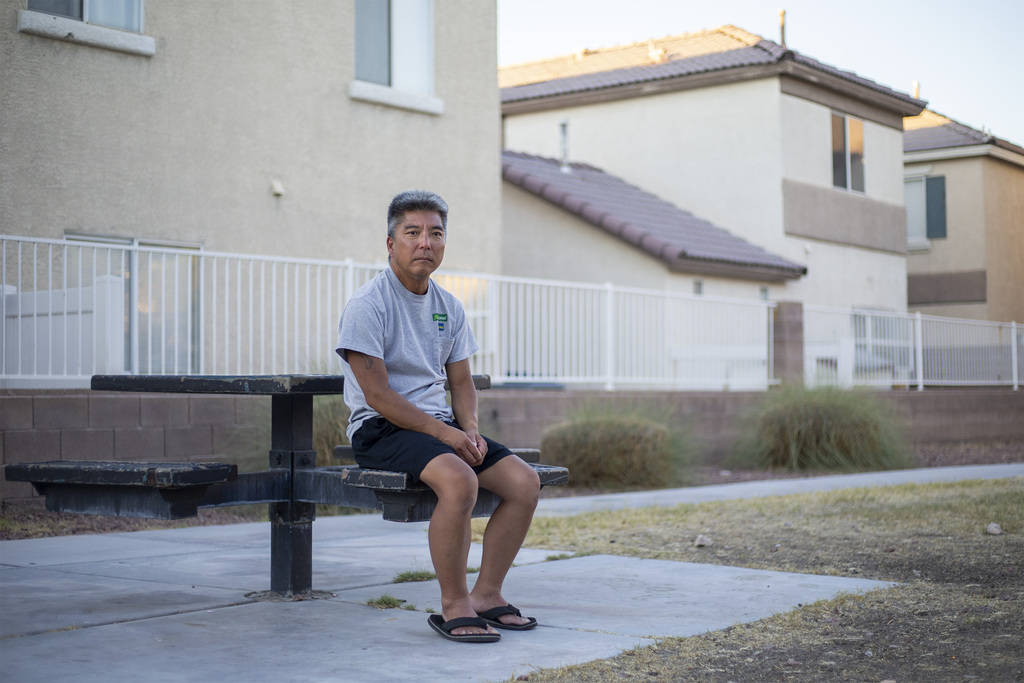Jobless Nevadans find out they have to repay unemployment benefits
It’s been four months that Dewy Tani has waited to receive unemployment insurance benefits, and he just learned money won’t be coming his way. Nevada’s employment office says he owes the department nearly $7,000 for previously being overpaid.
“I’m having a nervous breakdown,” Tani said. “I’m stressed out. I don’t know what I’m going to do.”
The Las Vegas resident isn’t the only one surprised to discover they owe the employment agency.
Gabriella Mederos, of Reno, received a letter three weeks ago stating she owes the Department of Employment, Training and Rehabilitation, or DETR, just over $7,000 about two months after she was already receiving weekly benefits. Meanwhile, Las Vegas resident Donna Myers recently received a letter saying she’s also been overpaid after being paid for only one week.
The notices asking for repayment come at a time when many jobless Nevadans are struggling to cover basic expenses.
It’s unclear how many individuals have received overpayment notices in recent months. DETR did not return a request for comment.
Claimants are typically notified by mail stating the reason for the overpayment, how much is owed and how an individual can appeal.
Overpayment is when a filer receives more money than they are eligible for and can occur for a number of reasons from a claimant failing to report earnings or income, fraud, or errors made by DETR, according to the state of Nevada website. It also states “all overpaid benefits must be repaid.”
Nevada made an estimated $30.7 million in improper, or overpayments, last year, according to the U.S. Department of Labor.
‘Not right’
Tani said he has been trying since March to contact the employment agency. He said the overpayment notice cited payments made in 2014, but the only other time he’s filed for benefits was in 2008.
He learned of the notice after wondering why he hadn’t received his benefits even though his coworkers were already being paid.
“I just happened to click under ‘My Documents’ (on his online account with the employment office), and that’s how I stumbled on this can of worms,” he said.
Tani believes his case may be fraud and has made several attempts to report it but has not been able to receive any communication from DETR or speak with a representative.
“I can’t take it anymore,” he said. “I’m just living second by second.”
Mederos filed for benefits in April after she was permanently furloughed. She contacted DETR and was told by a representative that her benefits will likely be paid after four weeks since she received severance pay.
“I submitted the stub to the severance because that’s what I was told to do, and then I got two, lump-sum payments maybe a week later,” Mederos said.
She figured the money was backpay since the payments arrived in June. But three weeks ago, Mederos received a letter from DETR telling her to repay an estimated $7,000 in benefits. She has stopped receiving her regular weekly benefit amount after receiving the letter but still receives the federal $600 weekly benefit.
“I spoke with someone in the adjudication department (Tuesday), and they said they were just pushing out money,” she said. “And he said, ‘Would you have rather not get paid?’ and I said, ‘Yeah, because now I’m in debt because of you guys.’ ”
Mederos appealed the notice last week but is worried about having to pay the money back, as she’s still unemployed.
“This is not right what they’re doing,” she said. “This is not OK.”
Not alone
Other states like Texas have also had overpayment problems. The Texas Workforce Commission found it made roughly $32 million in extra payments and initially told filers they would be required to pay those benefits back even if it was an error made by the commission.
It reversed course this month saying in a Facebook post it is “prevented by court order from collecting overpayments caused solely by the commission’s error.”
Nevada state law outlines claimants who have been overpaid must repay the state unless the overpayment “was received without fault on the part of the recipient, and its recovery would be against equity and good conscience, as determined by the Administrator.”
If a person is required to pay back benefits, Nevada can use various collection methods, including legal action, to recover the funds.
Myers, who filed under the Pandemic Unemployment Assistance program in May, said she received her first and, so far, only benefit payment three weeks ago. The same week she received a letter from DETR stating she was disqualified from receiving benefits and was overpaid from Feb. 8 to March 7, or a total of $2,345.
Myers believes it was because she was unable to adjust her filing date to begin March 16 when she created her initial claim, adding the PUA filing system would not allow her to change the date online.
She said each week she spends $4 to mail a packet of documents to DETR and calls every day in an effort to have the issue cleared.
“I literally start at 8 a.m. I do not stop until 4:30 in the afternoon,” she said. “At one point I counted … it came out to 615 (calls).”
Contact Subrina Hudson at shudson@reviewjournal.com or 702-383-0340. Follow @SubrinaH on Twitter.



















